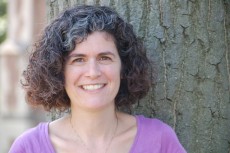The human immunodeficiency virus, known more commonly as HIV, is still at large today. With no known cure, the most researchers have been able to do is mitigate the effects of the virus. However, there are certain people who, despite being exposed to HIV, simply do not get infected. A team of biologists at the University of Minnesota, Twin Cities set out to find whether genetic differences play a role in this “immunity” to HIV.
Read MoreRecent Posts
Tags: HIV, University of Minnesota Twin Cities, 2015, UMinn
Combining scientific disciplines to tackle a common problem can be very powerful. In broad terms, biology benefits greatly from the processing and computational prowess of computer science and the molecular studies of chemistry. At the University of Wisconsin, Madison, a cross-disciplinary team is breaking the standard notions of tumor ablations.
Read MoreTags: Wisconsin, University of Wisconsin Madison, UWisc, 2015
In the process of growing and studying neurons in the lab, life science researchers often use flat platforms or dishes. But neural networks in the body don’t lie on a flat plane or platform. A research team from the University of Illinois, Urbana-Champaign decided to add a new dimension to neuron study by developing a 3D environment to study neural networks.
Read MoreOne of the most baffling and crippling sorts of diseases are those that incite the immune system to attack the body. This class of diseases, known as autoimmune diseases, may seem like a very specialized and rare affliction, but in truth, it manifests itself in the form of several commonly known ailments like rheumatoid arthritis, asthma, type 1 diabetes, and multiple sclerosis. A new study from the University of California, San Francisco points to some of the causes and thus possible treatments for autoimmune diseases.
Read MoreTags: CA, University of California San Francisco, 2015, SFVS
There are many times when putting tarantula toxin into human cells seems like a very bad idea. At the University of California, Davis, however, it is a breakthrough idea that allows for closer examination of the electrical activity in cells, especially neurons. This opens up the field of brain study and also lends insights into conditions like muscle defects, cardiac arrhythmias, and epilepsy.
Read MoreTags: CA, University of California Davis, 2015, UCDMC
Life science research has brought us the realization that one does not simply “age.” In the eyes of biotechnology researchers, the aging of the human body is a complicated, multifaceted process made up of several subprocesses. Some of these subprocesses can be delayed, stopped and even reversed. We saw one such example last month with a UCLA study on cell autophagy. Today, researchers from Ohio State University bring us another aspect of aging and show that it is reversible.
Read MoreTags: Ohio State University, Ohio, 2015
To many people, antioxidants are simply thought of as a good thing to consume, even if the reason why is not clear. A new study from the University of California, San Diego, shows that an overdose of antioxidants can actually inhibit the healing process.
Read MoreTags: 2014, CA, University of California San Diego, San Diego, SDVS, Biotechnology Vendor Showcase
To get under the skin of a tumor is a very difficult task. If the goal is to invade tumor cells, then classic drugs are simply too large to get through. A bioresearch team at the University of California, Los Angeles is collaborating with a startup company to develop particles small enough for the job.
Tags: CA, University of California Los Angeles, Los Angeles, LAVS
The increasing amount of genetic research brings with it the danger of the domino effect. That is, changing one gene can have unforeseen effects on other genes and on health in general. One such gene is found in the human retina, and has long puzzled researchers due to the chain reaction it can set off when deactivated. A team of bioresearchers from the University of Southern California and the nearby Children’s Hospital Los Angeles has finally solved the puzzle and unraveled the domino effect behind this gene.
Read MoreTags: University of Southern California, cancer research, California
When it comes to fighting bacteria, it’s all about understanding the enemy. Bacteria are especially good at rapidly dividing; in fact, they are more efficient than cells at self-replication. Microbiologists at the Washington University, St. Louis decided to go straight to the root of the problem and find out how to turn bacteria into zombies that can’t reproduce.
 The first step in shutting down bacterial replication was determining just why bacteria are so good at it, instead of just taking the fact for granted. Petra Levin (left), associate professor of biology at WUSTL, notes that “people spoke of the bacterial cell cycle as somehow magically coordinated even though there was no mechanism for doing so. Things just somehow worked out fine even though no control system had been identified.”
The first step in shutting down bacterial replication was determining just why bacteria are so good at it, instead of just taking the fact for granted. Petra Levin (left), associate professor of biology at WUSTL, notes that “people spoke of the bacterial cell cycle as somehow magically coordinated even though there was no mechanism for doing so. Things just somehow worked out fine even though no control system had been identified.”
Tags: Washington University St. Louis, Missouri, WashU, Microbiology, 5-Star Program

